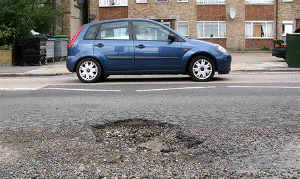How to Calculate Closing Costs of Physician Mortgage Loans

Physician Mortgage Loans, designed exclusively for medical professionals, have reshaped the home buying process for many in the healthcare sector. If you’re a medical professional contemplating a home purchase, this thorough guide will aid you in navigating the intricacies of these loans, focusing particularly on understanding and computing the associated closing costs.
What is a Physician Mortgage?
Physician mortgage loans are designed specifically for medical professionals. They have perks that fit the unique financial situations of folks in the medical field, like low or no down payments, easy qualification criteria, and flexibility with managing student loan debt. But, just like any other home loan, they also come with closing costs that are a big part of the home-buying journey.
Closing Costs
Closing costs include a bunch of fees related to buying a home. They’re usually taken care of during the closing period, which happens between when you make an offer and when the property officially becomes yours. Here’s a breakdown of what you can expect:
Mortgage Loan Processing Fees: These fees cover the cost of processing your mortgage loan application. These costs could encompass a range of things like loan origination or underwriting fees, along with attorney fees, courier fees, notary fees, credit report fees, or other documentation services.
Credit Report Check: A credit check is a necessary step to ensure your creditworthiness. It’s a part of the mortgage application process that you’ll have to pay for.
Property Appraisal Fees: An appraisal verifies the value of the home, ensuring you’re not borrowing more than the home is worth. This fee is typically paid by the buyer.
Home Inspection Costs: Home inspection is an essential step in the buying process. Inspectors check the electricity, plumbing, roofing, HVAC, and the structure of the property. Depending on the property, other specialists might be needed to check for termites, lead, etc.
Title Fees: A title search is crucial—it confirms that the seller truly owns the home and checks for any liens or claims that might block the property transfer. You might also consider getting title insurance, which helps cover any slip-ups made by the title company.
Survey Costs: A survey maps out the property, details whether structures meet legal codes, and confirms the property’s legal description and history.
Prepaid Expenses: These include homeowner’s insurance, property taxes, and interest charges that you’ll be required to prepay.
Other Closing Costs: These may include discount points, which come into play if you’ve chosen to “buy down” your interest rate, and transfer tax, which is a fee imposed by a state or local jurisdiction for the transfer of the property.
Calculating the Closing Costs
Although the actual closing costs will depend on a number of factors, you can get a ballpark estimate to help budget your out-of-pocket expenses. A rough estimate is to figure closing costs at about 2% to 5% of the property’s purchase price. Yet, for a more precise calculation, you might want to use a physician mortgage calculator.
Reducing Closing Costs
Although closing costs are unavoidable, there are strategies to negotiate or reduce these expenses. Here are some tips:
Shop Around: Compare closing costs with different lenders. Use your loan estimate to negotiate or ask your lender to match closing costs from a competitor.
Look for Better Pricing: You don’t have to use the service provider your lender recommends. You might save some cash by going with a different third-party provider for certain services.
Discuss Each Line Item: Engage in a detailed discussion with your lender about each fee. Often, just mentioning a fee can trigger the lender to lower it.
Ask the Seller: It really varies based on the housing market and the seller’s motivation. If they’re eager to finalize the deal, you might have some leverage to negotiate and see if they’d be willing to help cover some of the closing costs.
Roll Closing Costs into Your Mortgage: Although this might end up costing you more in the long run, it can help you save money on initial expenses.
Wrapping Up: Remember to compare your closing disclosure form with your loan estimate to identify any discrepancies. Being aware of these details will help you save money before signing your final homeownership paperwork. Just bear in mind that while physician mortgage loans can make homeownership more accessible for medical professionals, it’s important to understand all the costs involved.
Key Takeaways
Physician mortgage loans have really made a difference for a lot of medical professionals, helping them figure out the ins and outs of buying a home. Even though these loans have plenty of perks, it’s super important to grasp the closing costs and other money matters involved.



